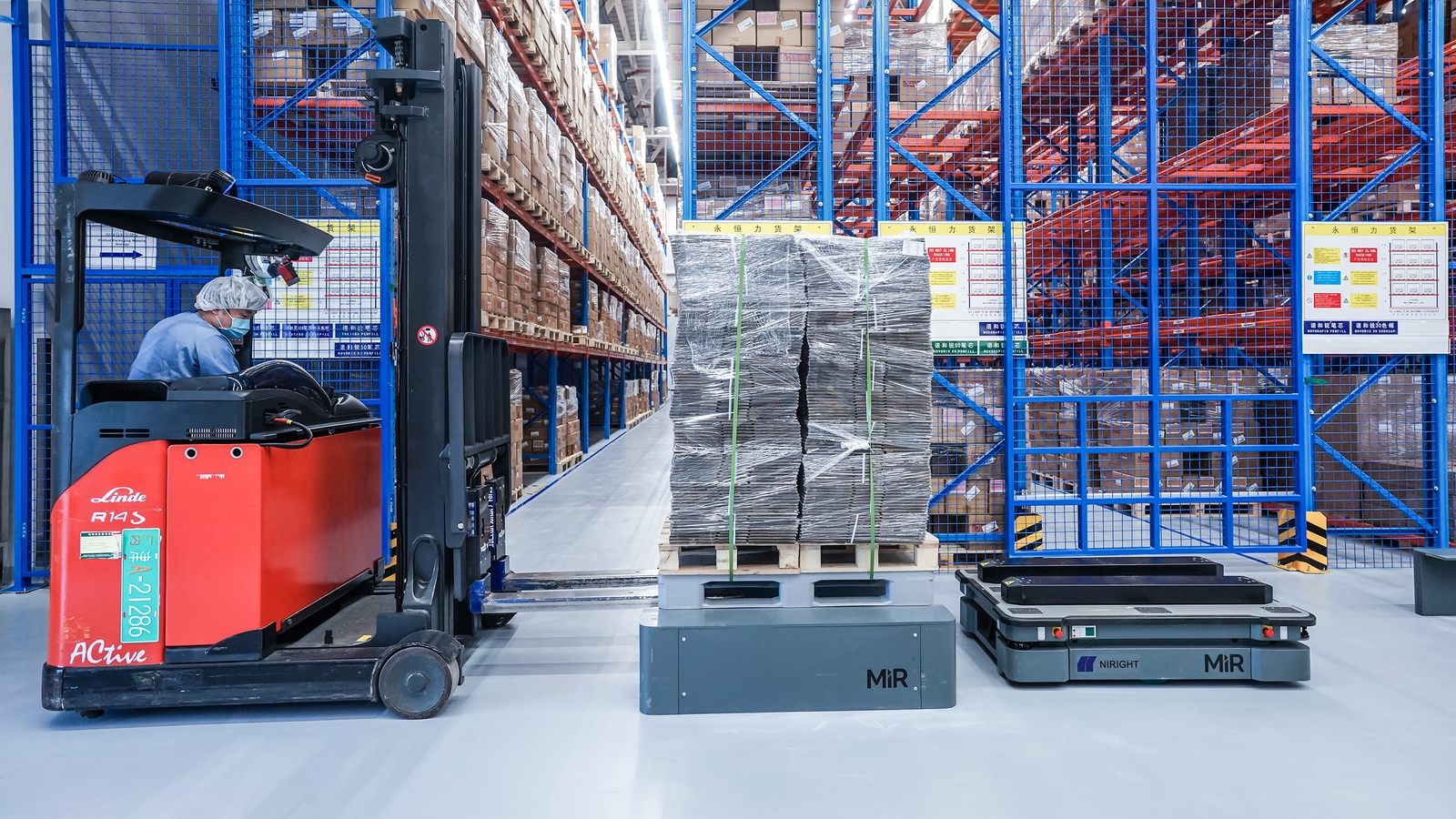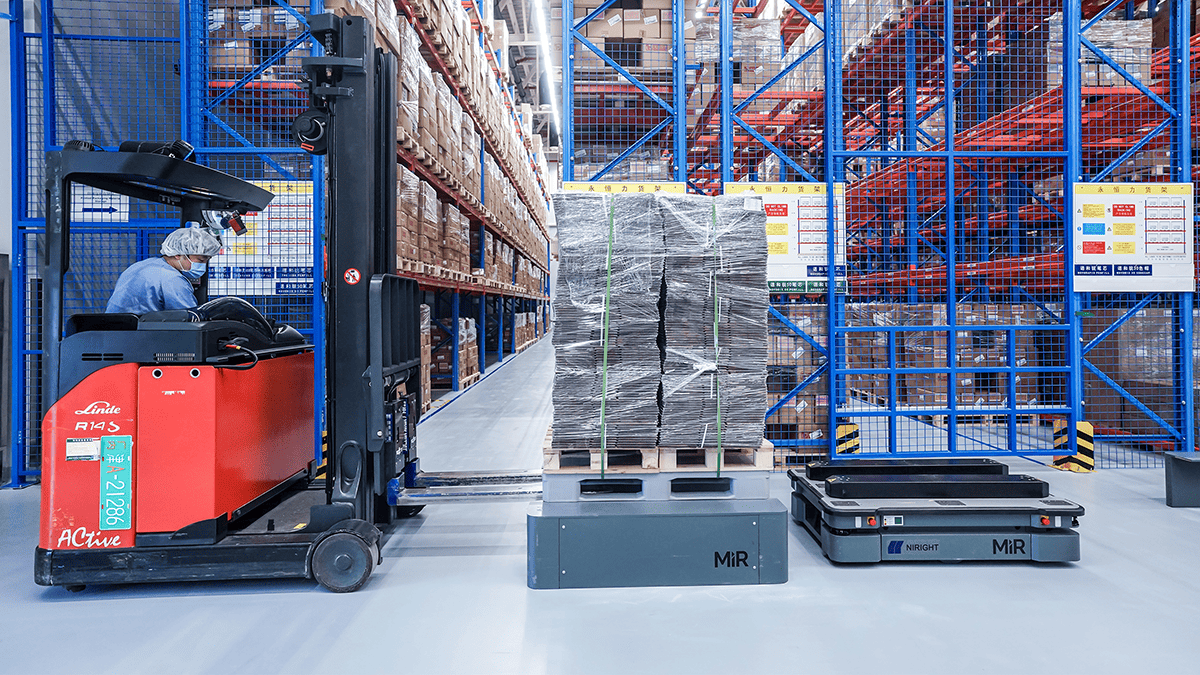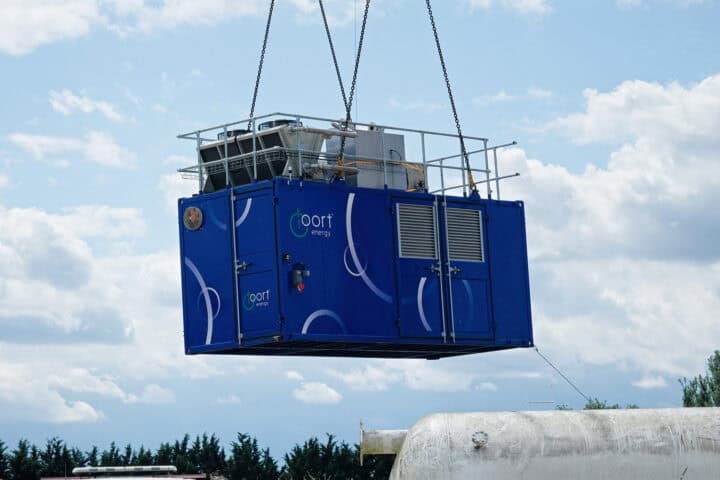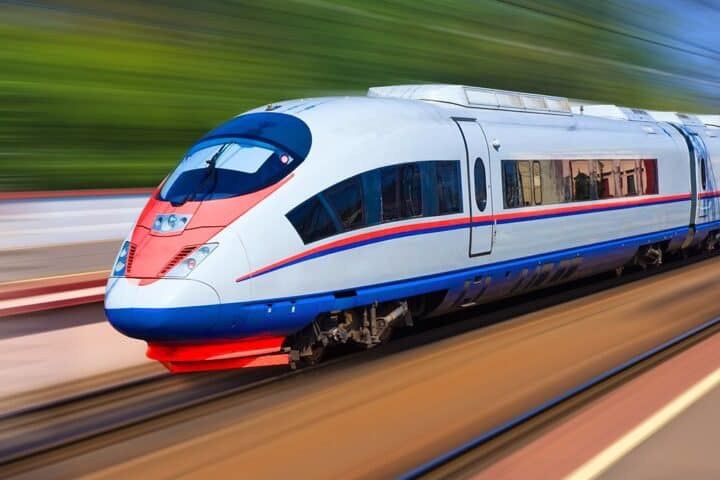The international logistics industry, a cornerstone of global trade and a significant contributor to the world’s GDP, is experiencing unprecedented growth. This surge in demand has propelled companies to significantly increase their investments in robotics and automation. “Advancements in Robotic Logistics” shows that sales of professional service robots for goods or cargo transportation witnessed a notable increase of 44% between 2021 and 2022. Despite these advancements, the industry faces a substantial challenge: a significant labor shortage that threatens its growth potential. The International Federation of Robotics sees the development of AI-enabled robots as a promising solution to these pressing issues.

Robotics: A Response to Labor Shortages in Logistics
Marina Bill, President of the International Federation of Robotics, underscores the gravity of labor shortages across the logistics sector, from truck drivers to warehousing staff. The industry is turning to robot manufacturers who are blending intelligent hardware with software to meet these challenges head-on. Robots equipped with AI are not just about automating tasks but are designed to handle the unpredictability inherent in logistics operations, from cross-border shipments to last-mile deliveries.
AI in robotics is transforming the logistics industry by enabling robots to learn from experience rather than relying solely on pre-programmed instructions. These advancements allow for the efficient execution of various tasks, such as warehouse picking and packing, navigation through factories, and enhancing maintenance operations.
Global Demographics and the Drive Toward Automation
The logistics sector is currently grappling with a shortage of three million truck drivers, a situation expected to deteriorate by 2028 due to demographic shifts. Regions worldwide face unique challenges; Japan is moving toward automation due to new labor regulations, the US struggles with a shortage of qualified professionals in e-commerce warehouses, and Germany is focusing on improving workplace conditions to retain older workers in physically demanding roles.
Marina Bill highlights the versatility of robotics technology in addressing various tasks within the logistics industry. Industrial robots are taking over tasks that are unappealing, monotonous, or hazardous, thereby creating more efficient and safer workplaces. The integration of robotics and automation is pivotal in bridging workforce gaps and securing the future growth of this vital industry.
Showcasing the Future of Logistics at LogiMAT 2024
The upcoming 2024 LogiMAT fair in Stuttgart, Germany, will be a platform for International Federation of Robotics members to present an array of logistics solutions. The IFR Statistical Department’s annual “World Robotics – Service Robots” report offers a comprehensive overview of the international service robotics market. The 2024 edition will focus on new domains like exterior transportation without public traffic, mobile guidance, and social interaction robots, offering insights from industry leaders and detailed market analyses in collaboration with Fraunhofer IPA.
As the logistics industry continues to evolve, the fusion of robotics and AI stands as a testament to human ingenuity’s capacity to overcome challenges and drive progress. The journey towards a more automated and efficient future in logistics is well underway, promising to reshape the landscape of global trade and supply chain management.











